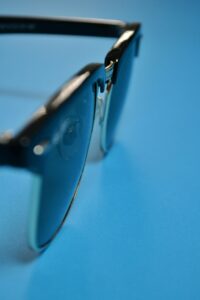
Our mission at Steve Wiseman Associates is to find ways of getting technology to work for those with a wide range of disabilities.
Steve Wiseman Associates Ltd
admin@swassocs.com
01158491871
PO Box 9390, Nottingham, NG9 9DQ
Steve was employed as a social worker for over 25 years, of which 14 years were spent on secondment to the Nottingham Traumatic Brain Injury Service, where he worked as a case manager. Prior to training as a social worker, Steve had worked in the electronics and computer hardware industry and had always known that technology could be of immense benefit to people with disabilities.
He started Steve Wiseman Associates in 2001, primarily offering a service to people who had sustained an acquired brain injury. The business continues to go from strength to strength and serves clients with a wide range of disabilities and, of course, their families and carers.
With a background in both technology and rehabilitation, Steve is well-placed to ensure that the service he provides for clients will promote their recovery and will be fully congruent with the treatment offered by all therapists who are working with that individual.
Keith is an occupational therapist with a passion for technology and its potential to enable participation in work, education, social-interaction and play. He has worked in hospital and community settings and is valued for his creative and person-centred approach to rehabilitation.
All our lives are becoming increasingly technology-dependent and disabled people are at risk of serious disadvantage if they are excluded from this revolution. It is encouraging to see major device and software manufacturers incorporate powerful accessibility tools into their products. Keith gets very excited when little-known features of mainstream tech enable one of our clients to do a job, learn something, express something or simply enjoy a game.
Emma qualified as an occupational therapist in 1994 and has worked predominantly in the community with adults and children with physical disabilities, followed by 15 years as a senior lecturer at Sheffield Hallam University, before returning to practice. Emma likes to explore different avenues of technology with people, from environmental controls to the use of phone apps. As a natural problem solver she will consider a range of solutions to best meet the needs of an individual and work with them and their carers to promote independence.
In her research for her master’s degree Emma found that users can be reluctant to use assistive technology because of its appearance and so she is keen to ensure that any adaptations are provided in a way that promotes inclusion.
She continues to teach at Sheffield Hallam University, mainly on their online Vocational Rehabilitation MSc programme. Using the same skills as she does in practice, Emma ensures that online learning is simple, interesting and inclusive to all, no matter what the level of technology knowledge is.
Emma also supports Steve with business development.
Russ is as an occupational therapist who works with both adults and children with a range of disabilities. He has a postgraduate qualification in the field of ergonomics and also has teaching qualifications in both mainstream education and for those with additional learning needs.
Russ has more than 20 years experience in helping people to develop their full potential. His interest in using technology to enable people includes communication, environmental control, photography and music creation technology and extends to engineering solutions if they are not readily available, for example he will modify children’s toys to enable them to be switch controlled. However, he also recognises that simple strategies can often be the most effective, especially when coupled with person-centred support and tuition, and training for carers and family members.
Russ was awarded Unsung Rehabilitation Champion of the Year by Rehabilitation First in 2016.
Lizzie has been working in the area of augmentative and alternative communication (AAC) and assistive technology for over 15 years now, with 10 years spent working as a qualified teacher within the special education sector.
Lizzie loves all things related to assistive technology, but her real passion is AAC. She is enthusiastic about supporting individuals who have communication difficulties to build independence by putting customised solutions in place, whether straightforward or complex. She has a flexible approach and her work is always driven by the individual and their unique needs and preferences.
Lizzie can advise individuals with decisions on hardware, access methods and language packages as well as setting up environmental controls, music, social media and other fun stuff. She is happiest when programming and creating personalised content. Training and support is crucial in helping a person to reach their goals, and Lizzie enjoys helping clients and the people around them to feel confident using their technology.
Lizzie very much believes that assistive technology can help to educate and entertain, promote rehabilitation and increase independence. Whatever the need, there is always a solution that can be made to help each individual.